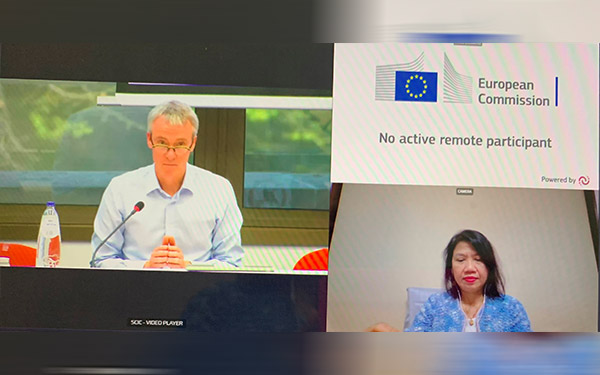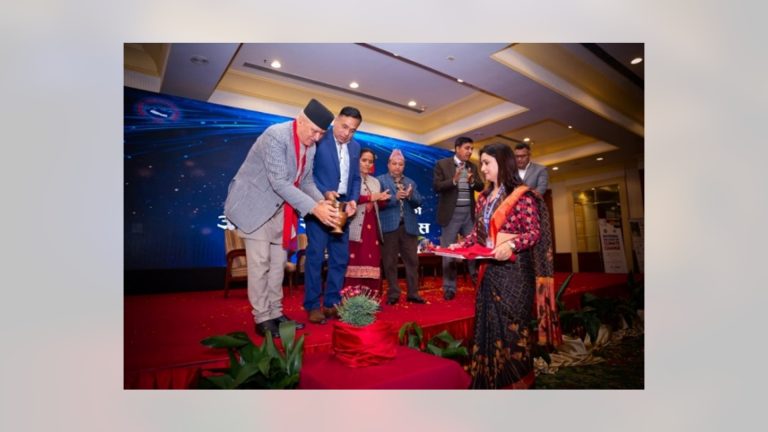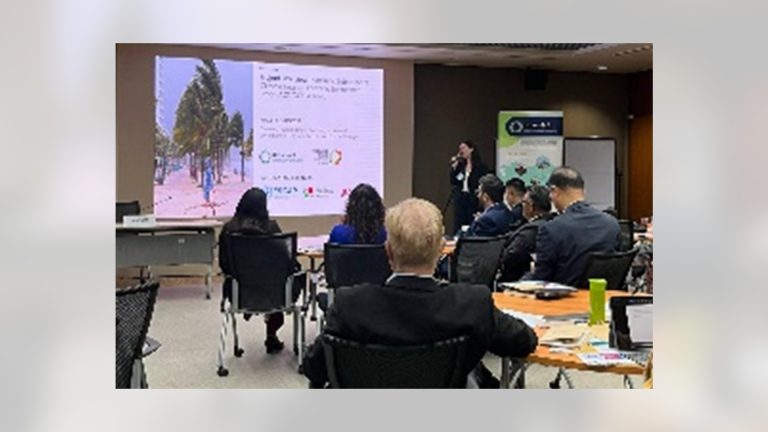15 September 2020 | UCLG ASPAC Secretary General Dr. Bernadia Irawati Tjandradewi, in her capacity as PFD member, joined the Virtual Global Meeting on Policy Forum on Development (PFD). This meeting was attended by Mr. Koens Doens, the European Union’s Director General (DG) for International Cooperation and Development, representatives from Local Authorities (LAs), Civil Society Organisations (CSOs), as well as other partners. This virtual meeting aimed at consolidating recommendations and key issues that PFD members would like to integrate in EU programming and how they can be better involved in discussion about programming and implementation of EU priorities: climate and environmental issues, digitalisation, economy and democratic values, and migration.
Representing the voices of Asia-Pacific region, UCLG ASPAC Secretary General shared the region’s perspectives. Included was the importance of providing an enabling environment for LAs and CSOs to build local resiliency (such as in social, economics, and institutional aspects i.e. climate, health, economic resilience). She stressed also stressed the importance of environmental management as it is also economic driver, referring to waste management. She highlighted support to be given to decentralisation, the delegation of authority with proper resources. Improving equality was also mentioned, considering the widening gap of inequality, particularly with the COVID-19 pandemic. She specifically mentioned that EU programming needs to focus on economic recovery, such as productivity and sustainable enterprises. In relation to that, she shared that Asia-Pacific also sees urgent priority in digitalisation. Lastly, she expressed agreement that LAs and CSOs need to allocate some space for discussion on migration.
Throughout the discussion session, the virtual global meeting on PFD noted some important points that will further shape the EU programming. All PFD members and DG agreed that a people-centred approach should be applied and education is relevant to that. Participants also agreed to promote social economy as sustainable micro and small and medium enterprises and inclusive business models can support decent job creation and social protection and reach the informal sector. In this opportunity, DG also stressed the importance of geographisation to better designate EU support to local needs, with suggestion from PFD members to use country level model for linkage of global and geographic programming and institutionalised multi-stakeholder dialogue. PFD members expressed their doubts on development impact of financing mechanisms. Responding to this, DG invited PFD members to be involved in an open dialogue to make this work better for ordinary people. Also included in the discussion were the importance of integrating humanitarian development nexus into programming and capitalising the diaspora.











